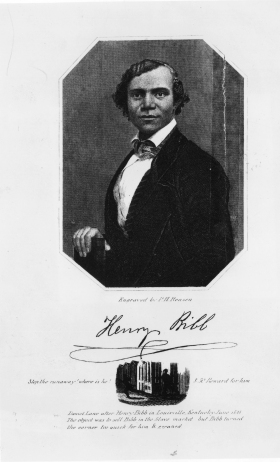December 25, 2022
Christmas is the reason for the season of escape for the enslaved
No matter how scarce the food, clothing and other resources, our enslaved Black ancestors found ways to celebrate Christmas.

Reverend John Wright was a Presbyterian minister active in Cumberland County, Virginia, during the 1760s. On the Feast of the Epiphany, 1761, he wrote to several benefactors in England describing the following Christmas scene: “My landlord tells me, when he waited on the Colonel [Cary] at his country-seat two or three days [ago], they heard the Slaves at worship in their lodge, singing Psalms and Hymns in the evening, and again in the morning, long before break of day. They are excellent singers, and long to get some of Dr. Wattss Psalms and Hymns, which I encourage them to hope for.”
However, a s U.S. slavery endured, there have been many accounts and visual depictions of our enslaved Black ancestors celebrating the Christmas season. However, deeper research reveals that the enslaved ancestors were actually more concerned about being separated from their families on plantations, than experiencing the joy of the Christian celebration of Jesus’ birth.
The great and brave ancestor, Harriet Tubman, chose Christmas 1854 to lead the way for her brothers, Ben, Henry and Robert, to escape their enslaved conditions. Later, she brought her parents out of the similar situations.

Abolitionist and social activist Tubman was born in slavery. She escaped and made 13 successful missions to rescue nearly 100 Black slaves.

This is a page from the autobiography of Henry Bibb, a former slave who successfully escaped on Christmas Day in 1837. MPI/Getty Images
He was born to a Black enslaved woman and a white U.S. state senator. He wrote “Narrative of the Life and Adventures of Henry Bibb, an American Slave, Written by Himself.”
| Another Fugitive’s Account | |
| Henry Bibb. Narrative of the Life and Adventures of Henry Bibb, an American Slave. New York: The Author, 1849. Rare Book and Special Collections Division. (2-13) | Henry Bibb was born a slave in Kentucky in 1815. He recounts his sufferings, escapes, recaptures, and unsuccessful attempts to free his family. Bibb lectured for the Liberty party in Ohio and Michigan during the 1840s and fled to Canada after the Fugitive Slave Act of 1850, as did thousands of other fugitives living in the North. His narrative includes many illustrations, including the depiction of the celebration of the Sabbath among the slaves and a slave sale.In the text Bibb mentions that “slaves were not allowed books, pen, ink, nor paper, to improve their minds.” He stated that such circumstances gave him a “longing desire . . . a fire of liberty within my breast which has never yet been quenched.” Bibb believed that he too had “a right to liberty and the pursuit of happiness.” |

